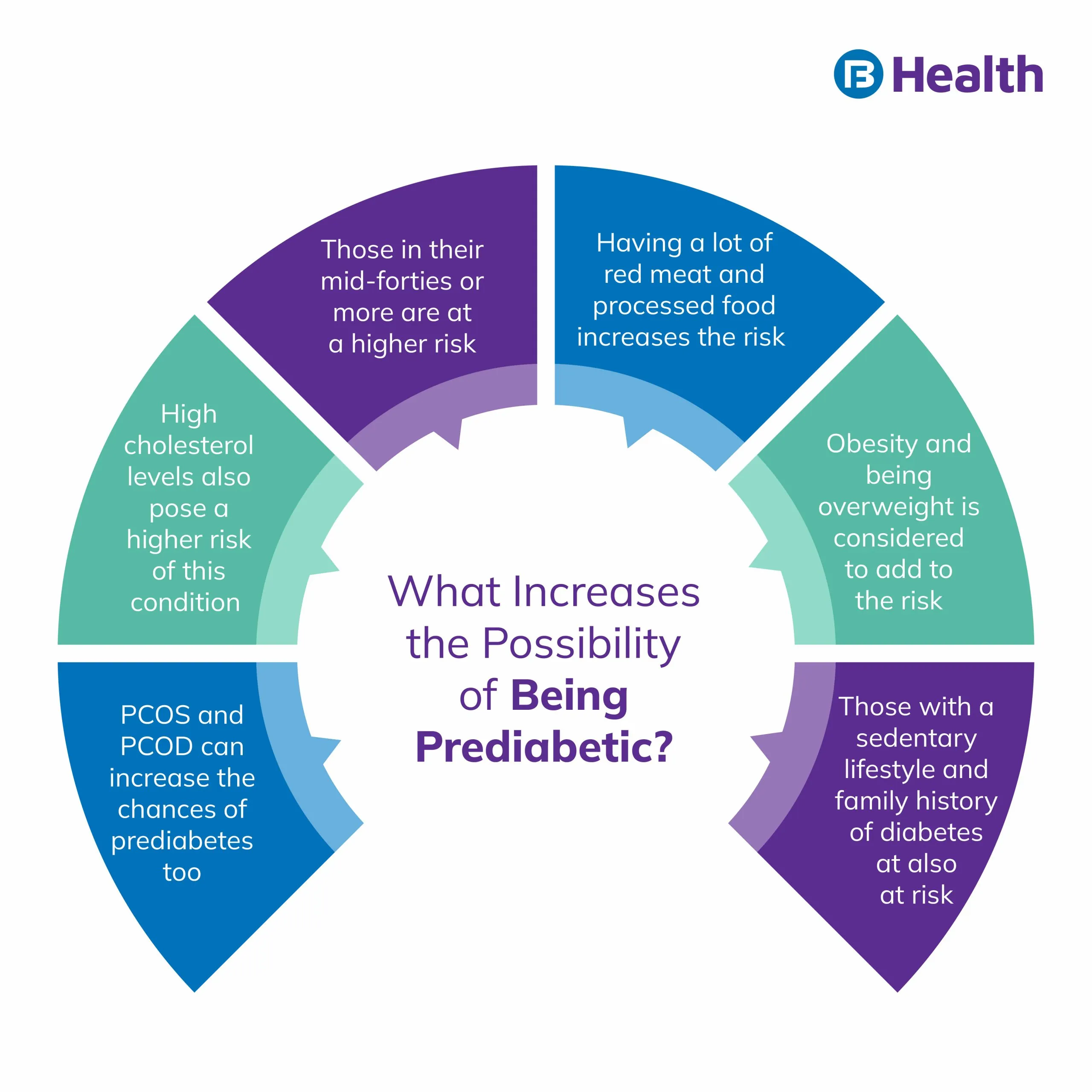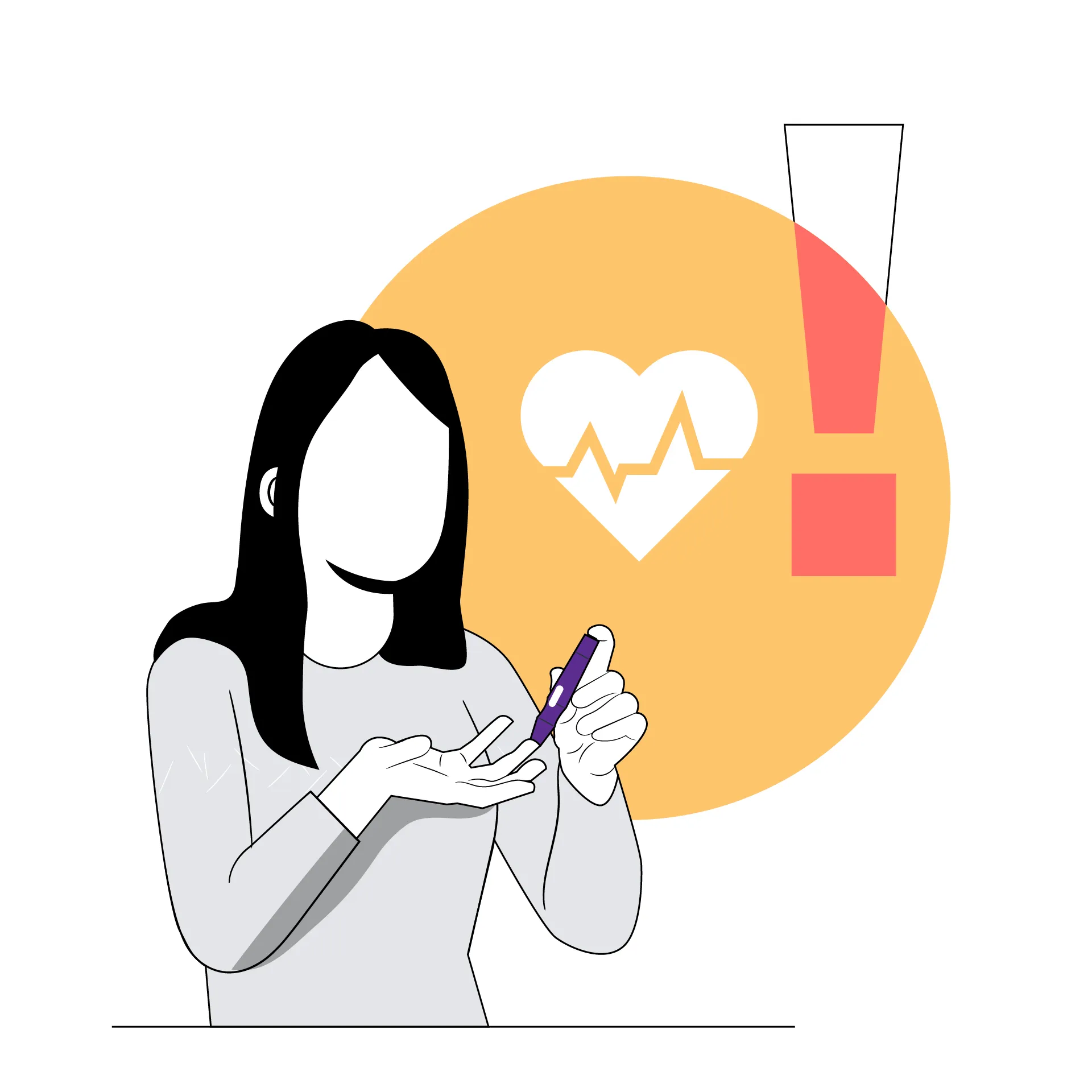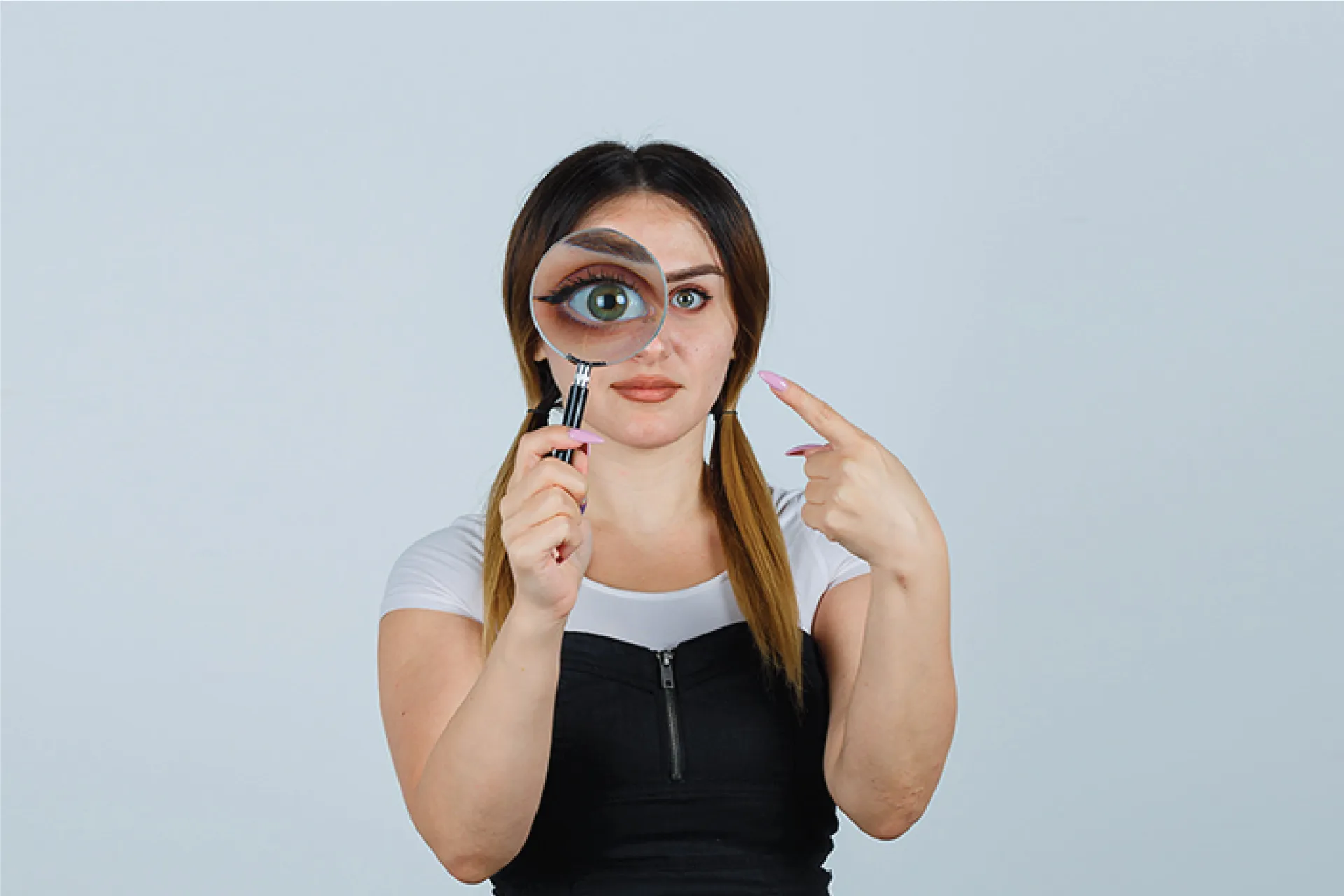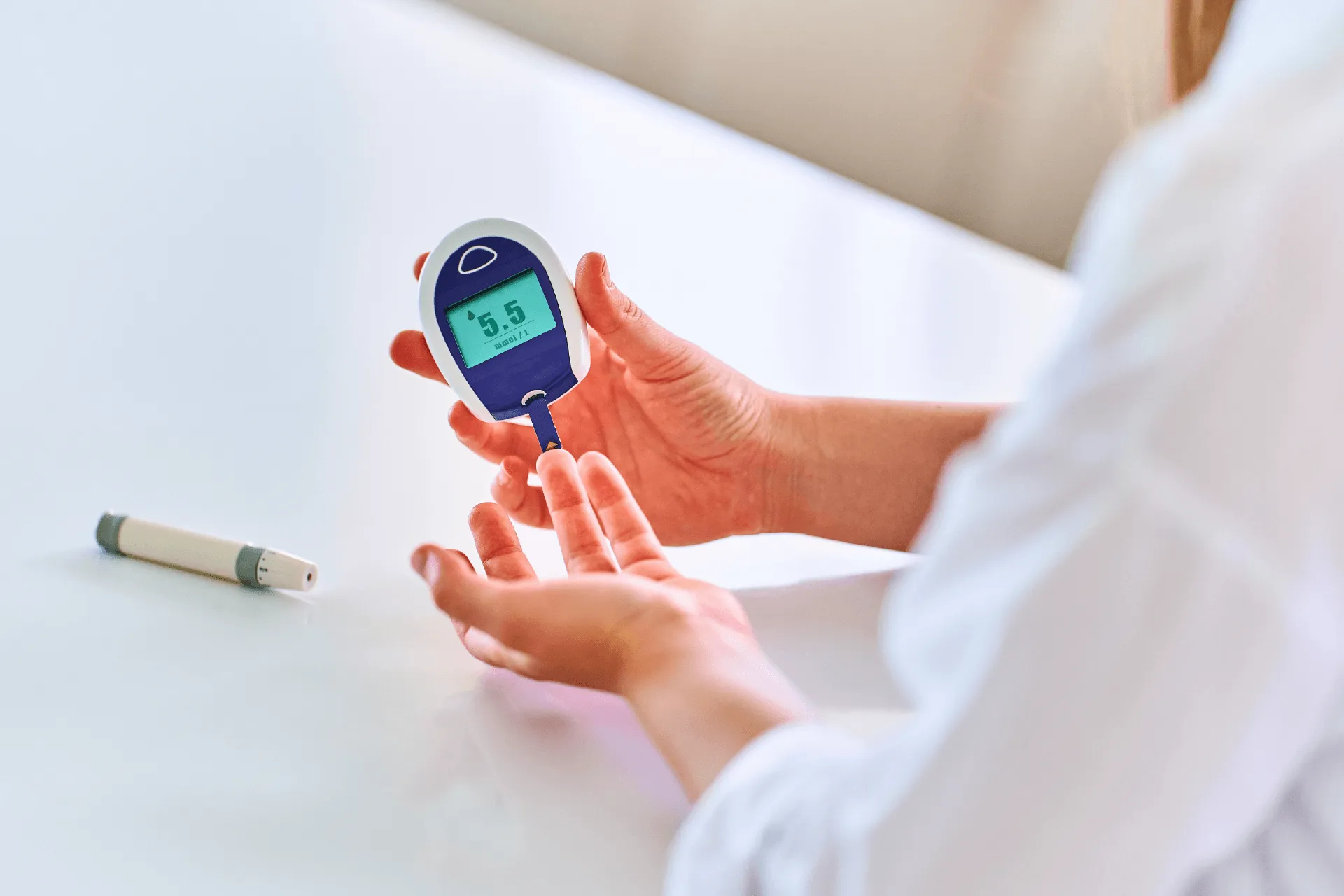Consultant Physician | 4 min read
Prediabetes: Symptoms, Causes, Range, Tips for Prevention
Medically reviewed by
Table of Content
Synopsis
Fatigue is one of the key prediabetes symptoms you shouldn’t ignore. Prediabetes can worsen over time and make you diabetic, so get prediabetes treatment via medication and lifestyle changes.
Key Takeaways
- Fatigue and constant thirst are two of the prominent signs of prediabetes
- Genetics and being inactive or overweight can lead to prediabetes
- Keep an eye on prediabetes symptoms to seek immediate treatment
In India, reports from the National Urban Diabetes survey estimate that 14% of the population has prediabetes. The worrisome thing is that most of us may not know that we have this condition, and only get to act on it when we start noticing the symptoms of diabetes. This is because prediabetes symptoms are not very noticeable and don’t cause alarm.
The important thing to know is that prediabetes, if left untreated, soon develops into diabetes, which can begin to affect your quality of life over time. In fact, research shows that when left untreated, 37% of individuals detected with prediabetes may develop diabetes within 4 years [1].
There are many other conditions like the Polycystic Ovarian Syndrome or obesity that may be linked to prediabetes symptoms. In most cases, lifestyle changes can reverse prediabetes and delay the onset of diabetes by up to 10 years. In order to understand the condition better, it is important to know the prediabetes range and when to see the doctor to get started on a plan to reverse the condition. Read on to know more about this condition, also known as borderline diabetes.

What is the prediabetes range?
To determine prediabetes, a blood glucose test offers the fastest confirmation. The glucose level in your blood is an indicator of blood sugar. If your results are borderline or slightly more than the normal range but lower than the range for diabetes, you may be prediabetic.
In most cases, fasting blood glucose is considered the primary marker of diabetes and is measured in mg/dL. For a normal person, it is usually lower than 100 mg/dL. On the other hand, for a person with prediabetes, the score will be between 100-125 mg/dL and for a diabetic individual, the score is higher than 125 mg/dL.
What leads to prediabetes?
Research throws light on several aspects that may lead to prediabetes. However, there is no definite cause earmarked for the condition apart from the fact that it is related to genes and may be passed on in a family. The main criteria here is that people with prediabetes are unable to break down glucose or sugar in their bodies in the right way.
You get glucose from your meals and drinks and through digestion, this sugar enters your bloodstream. Insulin in your body assists this absorption and regulates the sugar levels in your body. But if you are prediabetic, this sugar builds up in your bloodstream instead of being used by your cells. Primarily, prediabetes means that the insulin function in your body is impaired. So, when you work towards reversing the condition you begin to normalize the insulin functions in your body.
Additional Read: 6 Top Diabetics Exercises
What are common prediabetes symptoms?
Even though prediabetes has little to no symptoms, if you are mindful of your body you will be able to notice certain signs of prediabetes. Prediabetes symptoms include:
- Feeling thirsty, and even walking up from sleep because of it
- Hitting the washroom to urinate more frequently
- Experiencing blurry vision and feeling that your eyes get tired often
- Feeling fatigued and more tired than usual
How can you reverse prediabetes?
Simple dietary and lifestyle changes will help you keep the prediabetes symptoms under control. To start with consuming a fiber-rich diet that includes fruits, vegetables, nuts, seeds, and legumes. Decrease your intake of sugary beverages like canned juices or soda and reduce your dependency on sugar in your normal diet.
Begin to include at least 150 minutes of physical activity every week in your routine. A 30-minutes brisk walk on a daily basis is also good for your health if you have prediabetes. Studies also point toward HIIT (high-intensity interval training) as a great way for you to address prediabetes [2].
It is also important to control your stress levels and keep yourself calm from within by practicing yoga or meditation. Your doctor may also give you medication to lower blood sugar levels if needed.
Additional Read: Diabetes and Hypertension RelationshipNow that you are aware of the prediabetes symptoms, you can a get doctor's consultation when you start to experience any worrying signs. This will help you act fast and bring down the risk of diabetes. To ease the process of check-ups and to get the blood sugar tests done from the comfort of your home, you can book both online on the Bajaj Finserv Health app and portal while enjoying a range of discounts. This platform also allows you to talk to a physician of your choice from anywhere across India through a video consultation or even an in-person appointment. By acting without delay, you can not only address prediabetes but also understand the relationship between diabetes and hypertension and the correlation between cinnamon and diabetes so you can take better care of yourself. Get started now and put your health first. Protect yourself from diabetes you can avail diabetes health insurance.
References
- https://www.ncbi.nlm.nih.gov/pmc/articles/PMC4116271/#:~:text=Further%20analysis%20of%20the%20study,20%25%20(Figure%201)
- https://www.hindawi.com/journals/jdr/2015/191595/
Disclaimer
Please note that this article is solely meant for informational purposes and Bajaj Finserv Health Limited (“BFHL”) does not shoulder any responsibility of the views/advice/information expressed/given by the writer/reviewer/originator. This article should not be considered as a substitute for any medical advice, diagnosis or treatment. Always consult with your trusted physician/qualified healthcare professional to evaluate your medical condition. The above article has been reviewed by a qualified doctor and BFHL is not responsible for any damages for any information or services provided by any third party.




